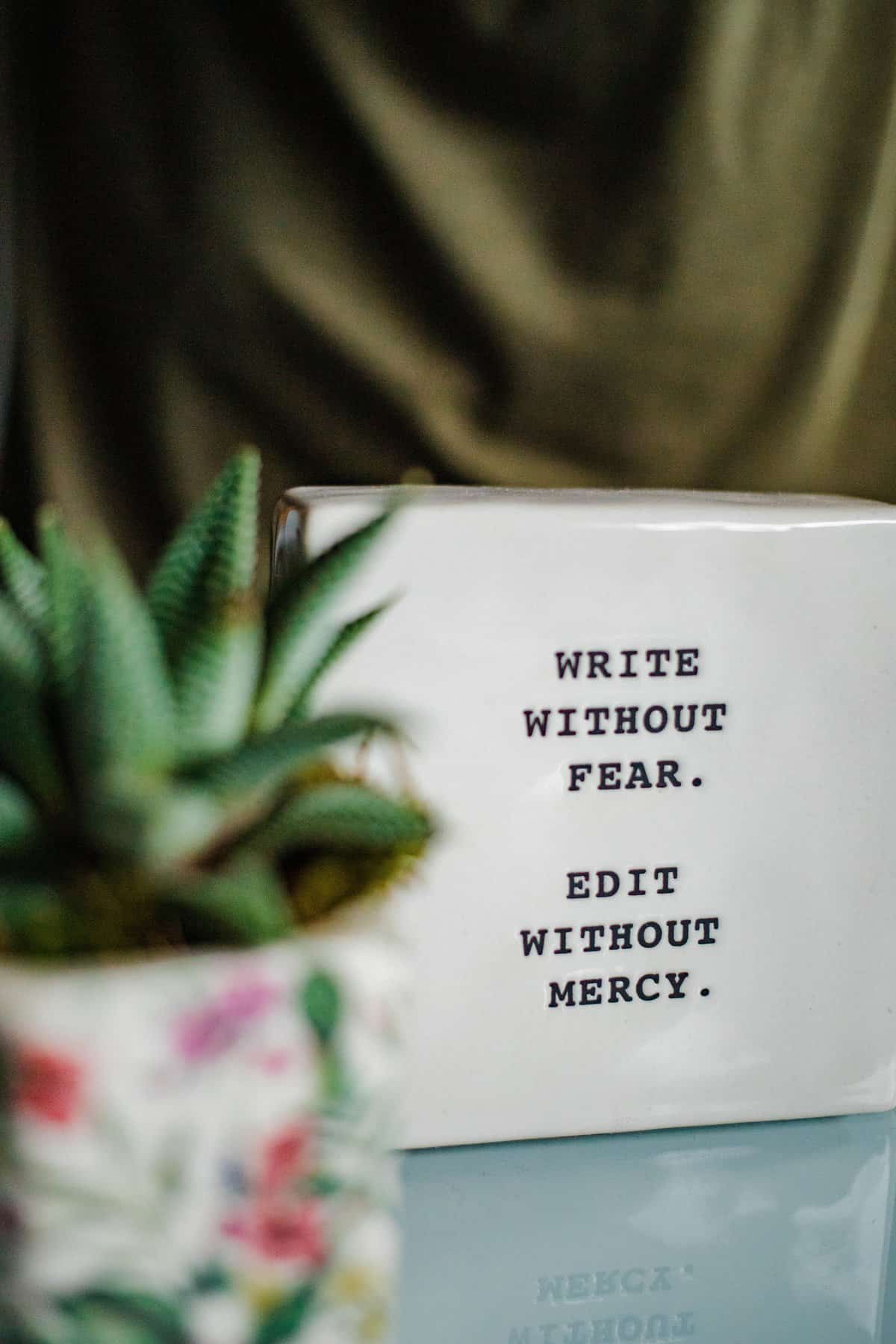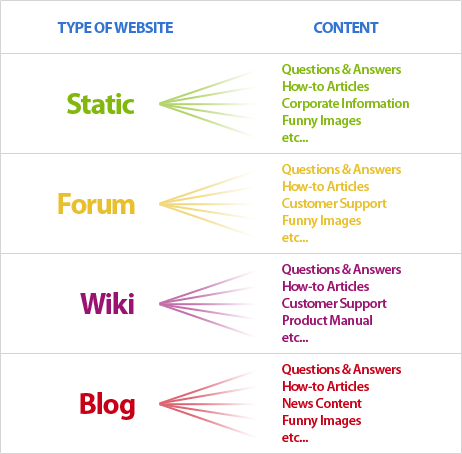Ever scratched your head and asked, “what is a blog,” and why it shows up all the time in your Google searches? Well, you’re in luck! We’re about to jump into the cool world of blogs, SEO, and how they work with Google. No more wondering, no more guessing. We’re going to figure out exactly what is a blog and why Google seems to love them so much.

So, What is a Blog?
You know, lots of folks have read a blog or heard about them. But when you ask, “What’s a blog?” you’ll get a mix of answers. Is it like an online diary? A place where companies share updates? Or a website where experts chat about special topics? Truth is, blogs can be all these things, and even more.
Here’s the cool part. As the Internet keeps changing, blogs do too. They started pretty simple, but now, they’re a big deal for sharing and finding information online.
Let’s throw in a fun twist. Picture this: you’ve just set up an awesome online store in the busiest part of the digital world. You’ve got cool stuff to sell, your website looks slick, but there’s a problem – your store is invisible. Bummer, right? But, what if you had a magic keyword that could not only make your store visible, but also make it super attractive to anyone passing by online? That, my friends, is the power of Search Engine Optimization (SEO). When done right, SEO can take your online store from being a ghost on Google’s back pages to a superstar on the first page. Now, tell me, who wouldn’t want that?
How Blogs Started and How They’ve Changed
To get a good idea of what a blog is, let’s go back to the late 1990s. The Internet was new and full of possibilities. This is when blogs started. They were online diaries where people could write about their lives and share their thoughts.
Now, blogs have changed a lot. They’re not just online diaries anymore. Businesses use them to share updates and promote their products. Experts write blogs to share their knowledge. News websites use blogs to share different kinds of stories.
Blogs have changed from being simple websites for personal stories to complex websites that encourage conversation and share lots of different kinds of information. They’re a big part of how we use the Internet today.
Year |
Event |
Impact |
Notable Example |
|---|---|---|---|
1997 |
First blogs appear |
Birth of personal blogging |
“Scripting News” by Dave Winer |
1999 |
Introduction of Blogger (Pyra Labs) |
Simplified blog creation process |
Blogger |
2002 |
Introduction of blog platforms like WordPress |
Blogs become accessible to all |
|
2003 |
Launch of TypePad |
Blogging platform with advanced features |
TypePad |
2004 |
Emergence of political blogs |
Influence on political discussions and journalism |
“The Huffington Post” |
2005 |
Rise of business blogging |
Blogs become a marketing tool |
Google’s “Blogger” platform |
2006 |
Introduction of micro-blogging platform Twitter |
Short-form, real-time blogging |
|
2007 |
Launch of Tumblr |
Emphasis on multimedia and social features |
Tumblr |
2010 |
Increase of video blogging (vlogs) |
Birth of video content creation |
YouTube channels |
2013 |
Emergence of podcast blogs |
Audio content gains popularity |
Podcasts like “Serial” |
2015 |
Growth of influencer blogging |
Influencers collaborate with brands for promotion |
Influencer blogs and social media |
2017 |
Rise of niche and specialized blogs |
Catering to specific interests and hobbies |
Food blogs, beauty blogs, gaming blogs |
2020 |
Impact of COVID-19 on blogging |
Increase in personal and lifestyle blogs |
Various personal and lifestyle blogs |
The Importance of SEO in Blogging
SEO stands for “Search Engine Optimization,” and it’s a vital tool to help your blog stand out on the internet. SEO is like a spotlight that makes your blog easier to find in the vast world of the internet. It helps search engines like Google find your blog when people are looking for the kind of information you’re sharing.
SEO and Keywords
The first part of SEO is using keywords, the words or phrases people type into search engines. If you’re writing a blog about dogs, for instance, you might include keywords like “best dog food,” “dog training tips,” or “how to groom a dog.”
Linking Strategy
Another part of SEO is linking. You can create links between your blog and other websites or different pages on your own blog. These links help search engines understand what your blog is about and how it connects to other relevant information.
User Engagement
The last piece of the SEO puzzle is user engagement. The more your readers interact with your blog—by reading posts, leaving comments, or sharing your content—the better your blog will do in search results.
SEO Strategy |
Description |
How It Helps |
Tool Example |
|---|---|---|---|
Keyword Usage |
Incorporating relevant search terms into your content |
Makes your blog more discoverable by matching search queries |
|
Linking Strategy |
Linking to other relevant content within and outside your blog |
Improves blog authority and helps search engines understand your content |
|
User Engagement |
Encouraging reader interaction (comments, shares) |
Signals to search engines that your content is valuable and relevant |
Social media plugins |
Mobile Optimization |
Ensuring your blog performs well on mobile devices |
Enhances user experience, important for search ranking |
|
Loading Speed |
Optimizing your blog to load quickly |
Improves user experience and can impact search ranking |
To wrap up, SEO is a crucial part of blogging. It makes your blog easier to find and can help boost your visibility on search engines. But remember, the goal isn’t just to rank high on search results—it’s to provide valuable, engaging content to your readers.
Misconceptions About Blogs
Even though blogs are everywhere, some people still get them wrong. Some people think blogs are only online diaries. But while many blogs are personal, they can also be so much more.
Today, businesses use blogs to share updates with their customers and promote new products. News websites use blogs to share stories in a more casual way. Blogs can be about any topic you can think of. This shows how blogs are not all the same—they’re diverse and versatile.
Blogs Today: What Are They?
So, let’s go back to our main question: “What is a blog?” In 2024, a blog is a flexible website where people, businesses, and organizations can share ideas, news, and stories. It’s a tool for making connections, getting people involved, and building communities. Blogs can be personal or professional, promotional or educational, and so much more.
Basically, a blog is like the Internet itself: it’s diverse, dynamic, and always changing. It shows how powerful it is when people connect and communicate. Blogs bring together people from all over the world. As long as the Internet keeps growing, blogs will too, always changing to keep up with new trends. So let’s celebrate blogs, which have changed how we connect, talk, and find information online.
From Online Diaries to Powerful Websites
When blogs first started, they were like online diaries. People would write about their day, their thoughts, and their experiences, and then post it on the internet for everyone to see. This was a big deal because it meant anyone with a computer could share their story with the world.
But as time went on, blogs started to change. Businesses saw that they could use blogs to talk directly to their customers. They could post updates, show off new products, or just share what was going on behind the scenes.
Newspapers and other news websites started to use blogs too. They would post more casual stories or share their opinions.
Even regular people started to use blogs in new ways. They would write about things they were experts in. For example, someone who loves to cook might start a blog to share their recipes. Someone who knows a lot about computers might write reviews of the latest tech gadgets.
Blogs Aren’t Just One Thing
Some people think that all blogs have to be about certain topics or written in a certain way. But that’s not true. One of the best things about blogs is that they can be about anything and take many forms.
Let’s say someone wants to start a website where they answer questions. They could make a forum where people post their questions and other people answer them. They could make a regular website and just post all the questions and answers on one page. They could make a wiki, which is a kind of website where anyone can edit the pages.
Or they could make a blog. Each post could be a question and an answer. Readers could leave comments to talk about the answers. This shows that blogs can be used for lots of different things, not just the stuff people usually think of.
Blogs Today
In 2024, blogs are still a really important part of the internet. People use them to share ideas, businesses use them to talk to their customers, and anyone can use them to learn something new. Blogs have changed a lot to keep up with new trends and technologies, but they still have the same main goal: to help people communicate and share ideas.
As the internet keeps changing, blogs will change too. But no matter what, blogs will always be a key part of the internet. Whether it’s a personal diary, a business update, or a how-to guide, blogs let people share their thoughts with the world.
So, a blog in 2024 is a powerful tool that can be used for many different things. It helps connect people, businesses, and ideas. And as long as there are stories to tell and ideas to share, blogs will always be around.
How Does a Blog Work?
If we think about a blog like a car, we’ve been looking at the outside so far – what it looks like, what it does. But now, let’s lift up the hood and check out the engine. What makes a blog work?
A blog is a type of website, kind of like how a pickup truck is a type of vehicle. And just like cars and trucks have different features, so do websites. Here are some features that make blogs special:
- Posts go up in order: Just like your Instagram feed, blogs show the newest post first. So, if you’re reading a blog, you’ll always see the latest news right at the top.
- Regular updates: Blogs aren’t like books where the author writes everything at once. Instead, they keep adding new posts, keeping the content fresh.
- Comments are welcome: Blogs usually allow readers to leave comments. This lets the readers and the blog author chat, share ideas, and ask questions.
- Easy to share: Other blog authors can interact using trackbacks and pingbacks, which are fancy ways of saying they can link to each other’s posts.
- Follow the feed: Blogs usually have RSS feeds, which let readers subscribe and get updates whenever a new post goes up.
Remember, all these features together make a blog a blog. It’s like how a car needs an engine, wheels, and seats to be a car. One feature by itself isn’t enough.
The Different Types of Blogs
Just like there are all kinds of cars – sports cars, family vans, off-roaders – there are all kinds of blogs. Let’s check out some of them.
- Personal Blogs: This is the original type of blog, like an online diary where people share their thoughts and experiences.
- Business Blogs: Many companies use blogs to connect with their customers. They can share news, promote products, or just talk about what they do.
- Professional Blogs: Some people have a lot of knowledge about a specific topic, like cooking, coding, or carpentry. They can use a blog to share their expertise.
- News and Media Blogs: News outlets use blogs to share news in a more informal way, sometimes letting their readers comment or even write guest posts.
- Educational Blogs: Teachers and learners alike can use blogs to share information and resources. They’re like virtual classrooms!
- Community Blogs: These blogs bring together people who share a common interest or experience, like video game fans or new parents.
Type of Blog |
Typical Content |
Examples |
Audience |
|---|---|---|---|
Personal Blog |
Daily life experiences, opinions |
Lifestyle blogs, Travel blogs |
General public, friends & family |
Business Blog |
Product updates, industry news |
Tech company blogs, Retail blogs |
Customers, industry professionals |
Expert Blog |
Insights into specialized topics |
Health blogs, Legal blogs |
Professionals, enthusiasts, students |
Educational Blog |
Teaching resources, study guides |
Teacher blogs, Science blogs |
Students, teachers, parents |
News Blog |
Current events, news commentary |
Political blogs, local news blogs |
General public, news enthusiasts |
Content focused on a specific hobby or topic |
Food blogs, tech gadget blogs |
Enthusiasts, hobbyists |
Just like no two people are the same, no two blogs are the same. Each one is unique, and that’s what makes them so great. So, the next time someone asks you, “What is a blog?”, you’ll be able to tell them it’s not just an online diary, but a powerful tool that comes in many shapes and sizes.

What’s Your Definition of a Blog?
Alright, folks! It’s your turn. We’ve talked a lot about what a blog is, but now we want to know what YOU think. We’ve all come across different kinds of blogs, right? Some are funny, some are serious. Some are about hobbies, and others are about work or study stuff. So, you might have your own unique view on what a blog really is.
Here’s a challenge for you. Can you come up with your own definition of a blog? You’ve heard mine. You’ve read about the history and evolution, how blogs are used today, and even about their technical aspects. But what do YOU think a blog is? What features do you think are most important?
And let’s take this challenge up a notch. Let’s also talk about the future. You know how the Internet is always changing, and things get outdated fast, right? Well, how do you see blogs evolving in the future? How important do you think they will be? Will they change in big ways, or will they stay more or less the same?
Remember, there are no wrong answers here. Your opinion matters because, guess what, you’re a part of this internet world too! Just like how blogs have evolved from being personal diaries to so much more, your ideas could shape what the future holds for them.
So, go ahead and jot down your thoughts in the comments section below. Share your definition of a blog and tell us what you think the future looks like for blogs. This is your chance to join the conversation and shape the narrative about this crucial part of the internet. So don’t be shy, let’s hear what you’ve got to say!